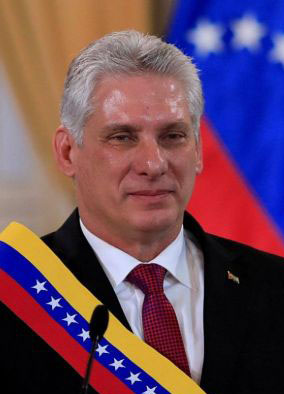HAVANA, (Reuters) – Cuba is on the verge of the most dramatic restructuring of its government in decades as popular criticism and frustration with a sluggish economy and bureaucracy mount.
If a revamped constitution is passed next month, as reports in the state-controlled media have suggested, new executive positions, from a prime minister to provincial governors and municipal mayors, will be created to lighten the load on single figureheads, such as the president, and increase the focus on executing policy.
Provincial government will be reduced under the proposals in a land the size of the U.S. state of Pennsylvania and municipal government strengthened.
“The structural changes in government proposed in the constitution all seem aimed at improving efficiency,” said William LeoGrande, a professor of government at American University.
“For example, the new post of prime minister puts someone in charge of the day-to-day job of overseeing the ministries,” he said.
The proposals dovetail with ongoing economic reforms of the Soviet-style system. They imply stronger governance, such as making state companies more autonomous and implementation of a tax system after more than a half a century of no direct taxes.
The terms of ward delegates, the only directly elected leaders in the country, will double to five years and the leaders of municipal assemblies and mayors will make up provincial councils led by the governor, replacing provincial assemblies.
The ward-level delegates already make up the municipal assemblies and elect their local executives. They will now also ratify the governors proposed by the president and who will coordinate between the national and municipal levels.
Bert Hoffman, a Latin America expert at the German Institute of Global and Area Studies, said Cuba’s new President Miguel Diaz-Canel “wants to show that he is a modernizer and second, someone who achieves change.”
Like LeoGrande, Hoffman said economic reforms were moving slowly because there appeared to be resistance and a lack of consensus among the Communist-ruled island’s leadership under Diaz-Canel.
“So he takes on the institutional setup which does not immediately affect powerful interests and where he can make progress. It will also allow him to bring in new cadres and consolidate his power base,” Hoffman said.
Campaigning is prohibited in Cuba, and candidates for the ward posts are nominated at neighbourhood meetings. They need not belong to the Communist Party, and many candidates are independents, but only a few government opponents have ever competed. In 2017 they were barred from doing so.
The candidates for the provincial and national assemblies are not directly elected. Commissions composed of representatives of Communist Party-controlled organizations, such as the trade union federation, present them as a slate for a public vote. They in turn elect the executive.
Assuming the new constitution is passed, only the 605-member National Assembly will take office through this indirect method in the future.
During a grassroots debate on the constitution, before the final version was drafted, issues such as gay marriage and social equality dominated discussion, according to the government, while thousands of citizens raised various concerns over the electoral system.
Meanwhile, while state-run media are pushing for a “yes” vote, debate on whether to vote for or against the revamped constitution is raging among a smaller percentage of the population with access to the internet.
“I will vote no because Article 5 of the Constitution leaves the country in the hands of the Communist Party for centuries to come,” tweeted Yoani Sanchez, the island’s most famous blogger and editor of an online newspaper.

